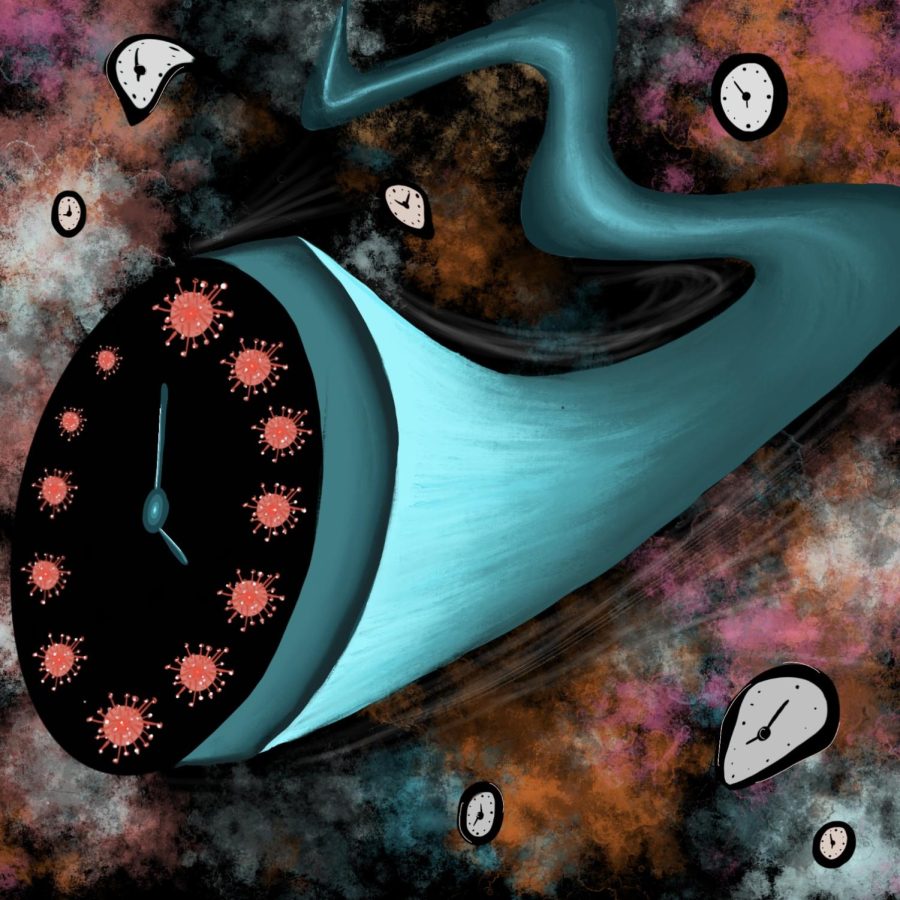The best time to get vaccinated is when you’re asleep, UT researcher finds
February 16, 2023
Vaccinations are more beneficial when delivered during the resting phase of the circadian rhythm — as opposed to during waking hours — a UT researcher found in a Jan. 30 study.
Louise Ince, a research scientist in the Fonken Lab, worked with a team of scientists in Germany and Switzerland to look into the relationship between circadian rhythms and adaptive immunity, which arises through tools such as vaccines.
Laura Fonken, assistant professor in the College of Pharmacy, said the human circadian system does more than just regulate the sleep-wake cycle — it controls many of the behaviors and functions our bodies engage in during the day.
“If you think about why the circadian system would regulate these types of (immune) functions, it makes sense because you encounter different risks throughout your day,” Fonken said. “You’re much more likely to encounter infection or injuries, something that your immune system needs to respond to when you’re out and active during the day rather than when you’re asleep at night.”
The study examined immune responses through the administration and movement of dendritic cells, the first cells involved in linking innate immunity factors such as cellular defenses to adaptive immunity methods. Researchers found animals had a better response when given dendritic cells during their resting phase instead of when they were awake. When administered during the resting phase, more dendritic cells moved to the lymph nodes, bodily structures that contain disease-fighting white blood cells.
“That initial stimulus drives more cells home to the lymph node, and elicit an adaptive immune response which becomes protective in the case of vaccination,” Ince said.
Researchers also used Hepatitis A and COVID-19 vaccinations to determine if the immune responses to a wider range of pathogens continue to follow this pattern. Ince said she predicts newer mRNA-based vaccines will follow the same rhythm as the peptide-based vaccines used in the study.
“Those responses also were dependent on the timing,” Ince said. “If we gave our vaccines during the animal’s resting phase, we got better antibody production, and we also saw stronger T-cell responses if we re-stimulated, so that really mimics a second exposure to the pathogen.”
Ince said the study’s findings could help improve therapies for people who experience circadian rhythm disruptions through circumstances, like shift work and jet lag, as well as have wider applications, like determining a recommended time of day to get vaccinated.
“It’s a really easy way to get more benefit from a drug that is already approved,” Ince said. “If you can give it a time when it’s most effective, then that’s going to be the biggest benefit for the population at essentially no extra costs. I hope that it’s picked up by more clinicians to account for timing in terms of all of their therapies. If it targets the immune system, there’s a good chance there’ll be an optimum time that it can be delivered, and this can have huge benefits for patients.”











